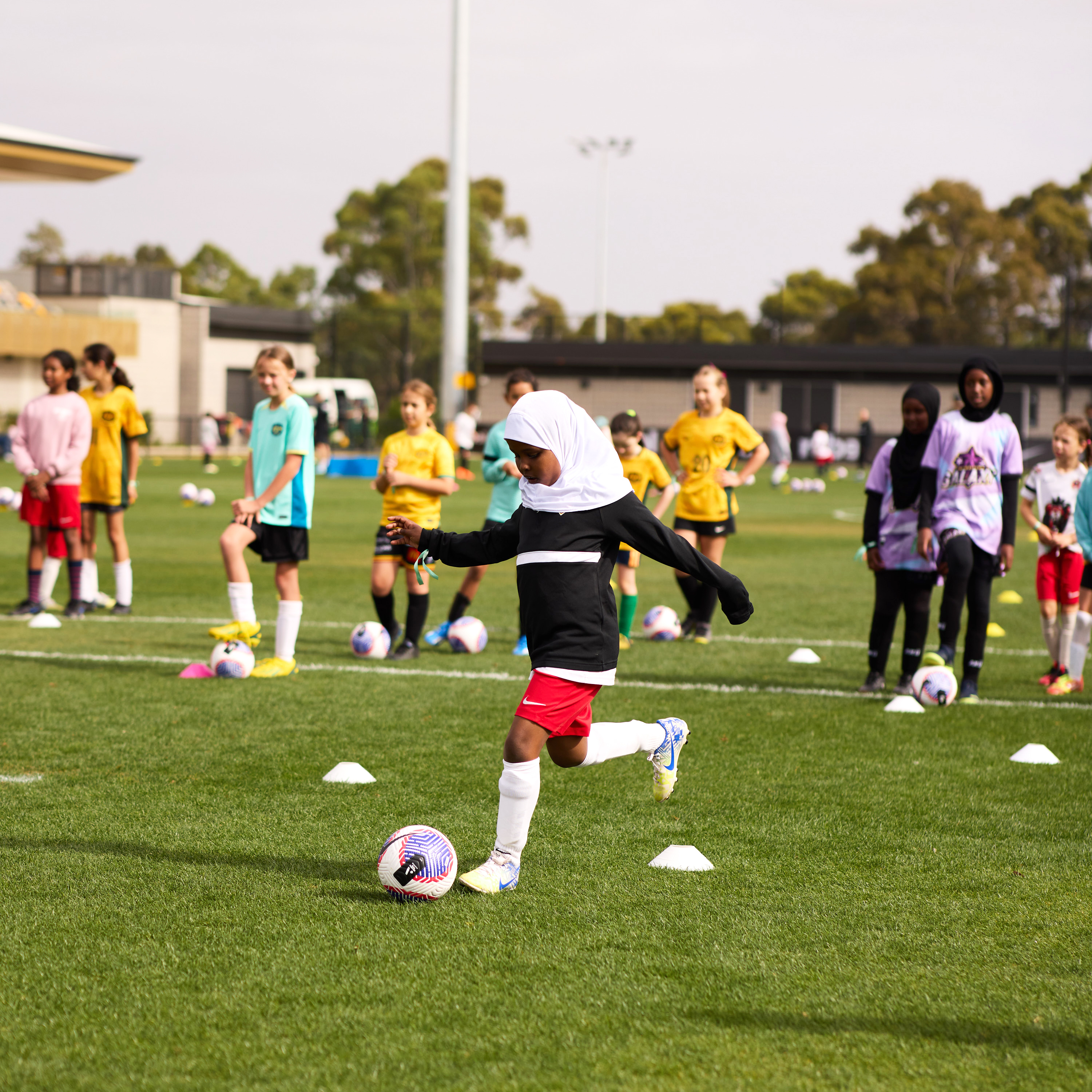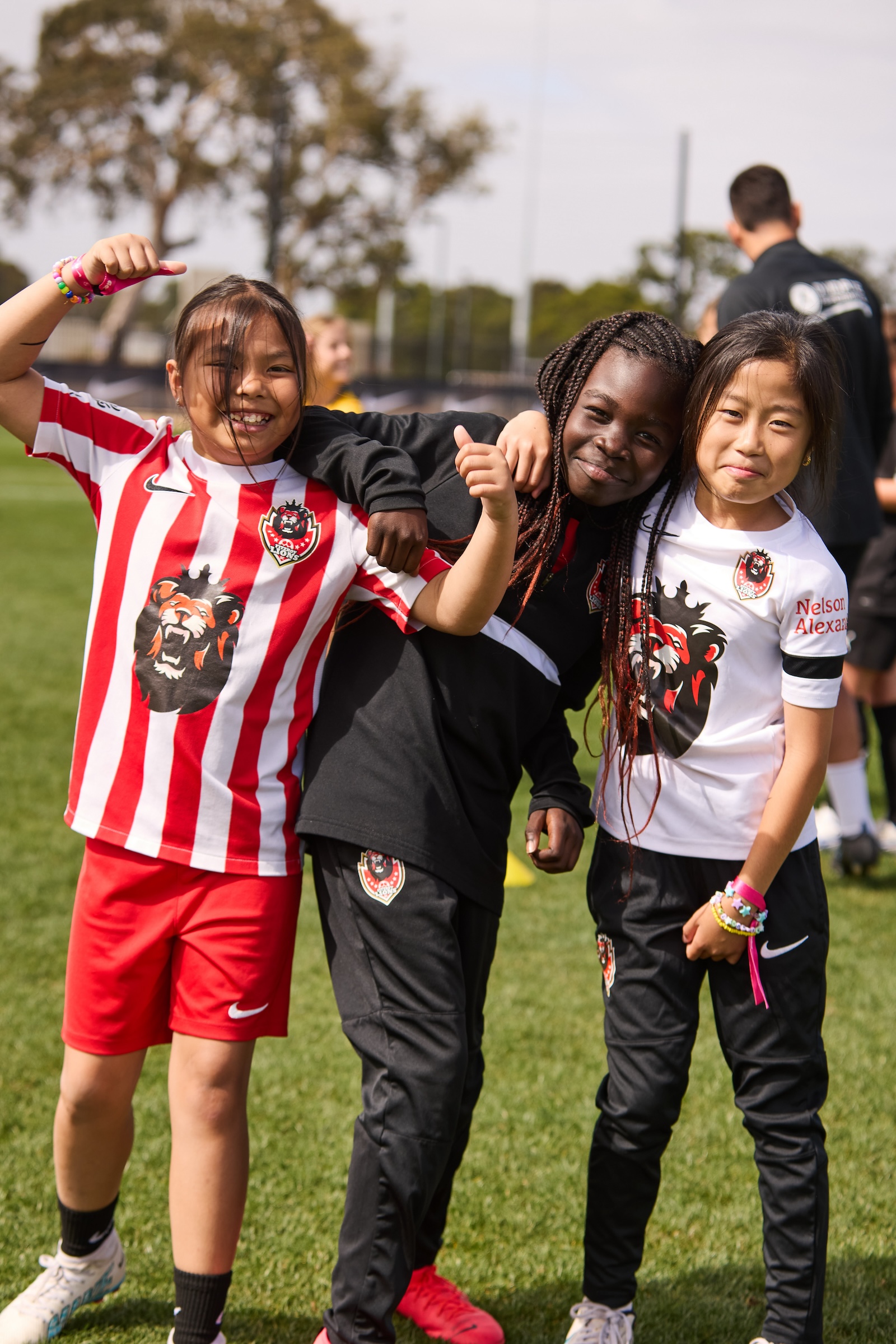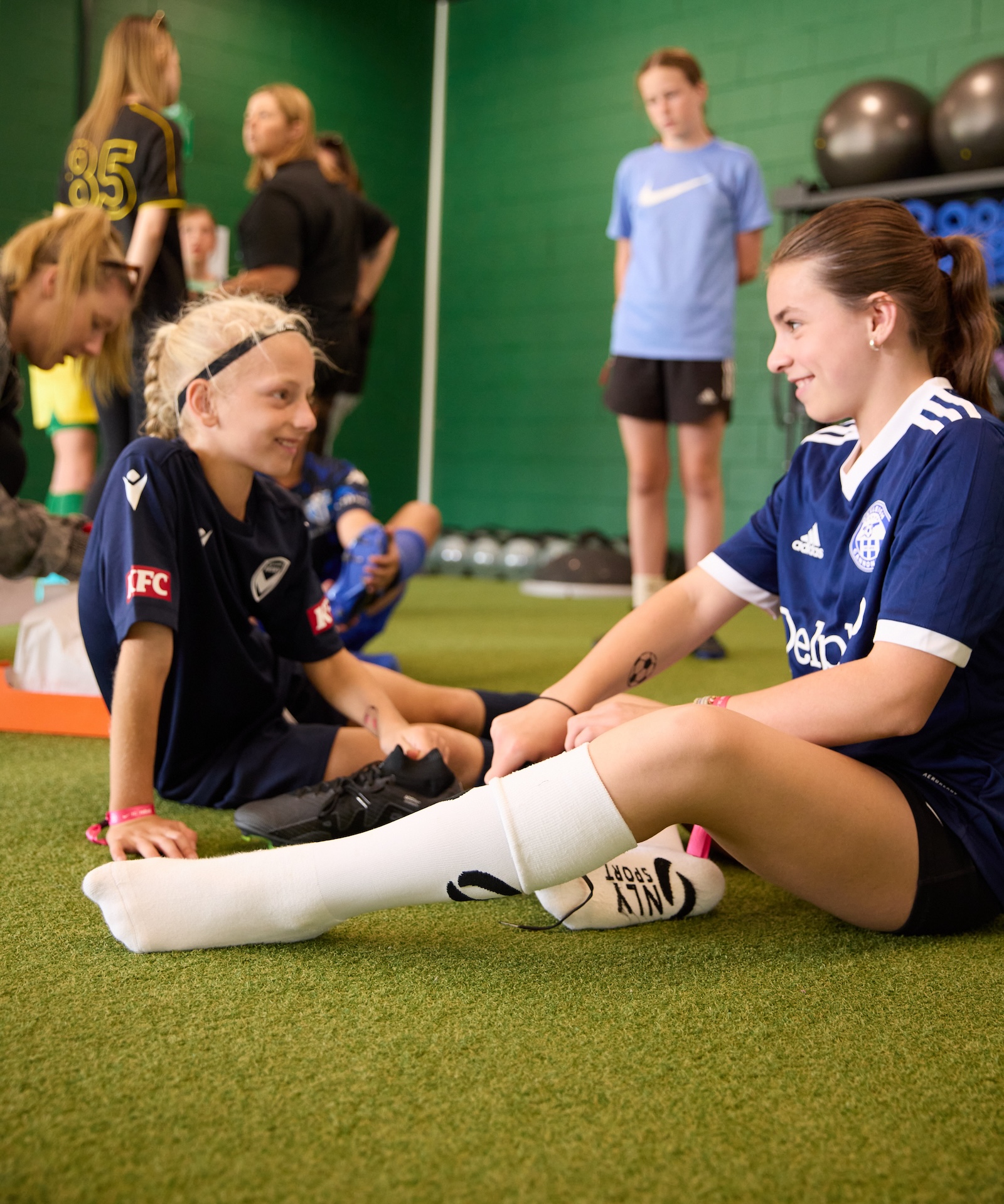Author:
Molly Kelly-Yahner, Lead Content Strategist
Commitment to sport and the community it builds is truly part of OBE's DNA. From local community-focused initiatives to massive global-reaching programs—we’ve crafted lasting experiences over the past few decades for numerous client partners ranging from retailers such as Nike, Beats and Allbirds to organizations that are not typically associated with sport, like JPMorgan Chase and Golden Road Brewing.
Over this past year, we teamed up with Nike FC and Rebel Sport in Australia to create GoalGirls—a program that builds upon the popularity of football around the Women’s World Cup and the Australian women’s national team, the Matildas. This program exists to unite thousands of girls throughout Australia around their passion to play and support their goals both on and off the pitch—from fun to competitive. Girls ages 8-12 joined the GoalGirls community to access digital football skills tutorials from Matildas player and rebel Ambassador Ellie Carpenter, receive special product offers, and connect with their community through sport.
 Play Day at the Home of the Matildas: GoalGirls Hit the Pitch
Play Day at the Home of the Matildas: GoalGirls Hit the Pitch
The first community event of 2024, and the second in the program after an in store Perth event, brought girls from across Victoria together for Play Day—a free event at the brand new home of the Matildas—to learn football skills and drills, test out Nike football boots, win exclusive signed prizes, and connect with a community of girls who share a passion for and interest in football. There was even a session for parents with an incredible turnout, where Australia’s leading Sports Psychologist, Jacqui Louder, lead a discussion with Tara Rushton on how to support young girls on and off the football pitch and the changes they go through during these significant ages 8-12.
Play Day was a bit of a reunion for Tara and Jacqui, as earlier in the program, Tara interviewed Jacqui to dive into understanding young girls and tips for supporting their participation in sport. As an expert in sport and psychology, the insights and tips that came from this interview are useful and important for everyone, to better understand how we can show up for and build a safe and empowering place for girls in sports.
 Why Sport?
Why Sport?
For young girls moving with others and joining a team is about connection. Sport brings us together, it makes us feel included and accepted, it’s also where we can build life-long friendships. Kids who are active in play are able to think more creatively, have cognitive flexibility, and increased brain functioning compared to kids who do not play.

How do young girls and boys differ?
According to Jacqui, the wiring in girls’ and boys’ brains is different. Young girls have communication centres on both sides of the brain, meaning they are typically stronger communicators.
The effect: young girls get into sport for the social aspect, to make friends. Before turning 10, logic and reason hasn’t fully developed, meaning ‘play’ is about fun, and creating positive experiences, making the GoalGirls program the perfect launch pad for young girls to train together, goal set, and build a community in a supported environment. When girls hit age 12, they tend to decrease participation in sports due to pressures from adolescence, schoolwork, and decreased funding.
How can I support young girls in sport?
Move together.
Jacqui’s tips to keep our children participating in sport were to:
-
Look for opportunities to move as a family (a walk after dinner, parking further from the shops and taking the stairs).
-
Make your opportunities for movement together fun!
-
Focus on participation over performance.
Stay engaged.
Social opportunities and strong support systems keep girls involved in and around sport. Reframing ‘participation’ for young girls is an important tool, according to Jacqui. Girls can remain involved, without having to be physical. If children don’t feel up to competing, they shouldn’t just drop out of the game.
“Why don’t we change that role? They can coach, run the water, we can find ways to keep them participating until they feel ready to return.”
At this age, there are a host of changes to navigate—especially how the body is changing, and it’s our responsibility to make our kids feel comfortable, whether that’s a private place to change or a comfortable uniform. Providing options can keep young girls in sport.
Seeing their parents enjoy the community too is an added benefit—so parents can lean into their parent network for drop-offs and pick-ups to keep young girls involved.
Monitor your language.
Participation is the measure of worth—not the result, so use language that focuses on how you ‘felt’ and what you enjoyed not ‘How did you go?’ Speaking positively about teammates and the opposition will help to set a strong, balanced example for young girls.
Protect their play.
If we want to enhance the future of women in sport, we also need to create an inviting, inclusive, and fun space for young girls to experience sport. From the Women’s World Cup to the Women’s NCAA tournament, women’s sports are taking the world by storm, gaining new fans along the way. We stand committed to promoting progress.
Photo credit: Conti Bros (header image); Beagle and Hound (inline images)
